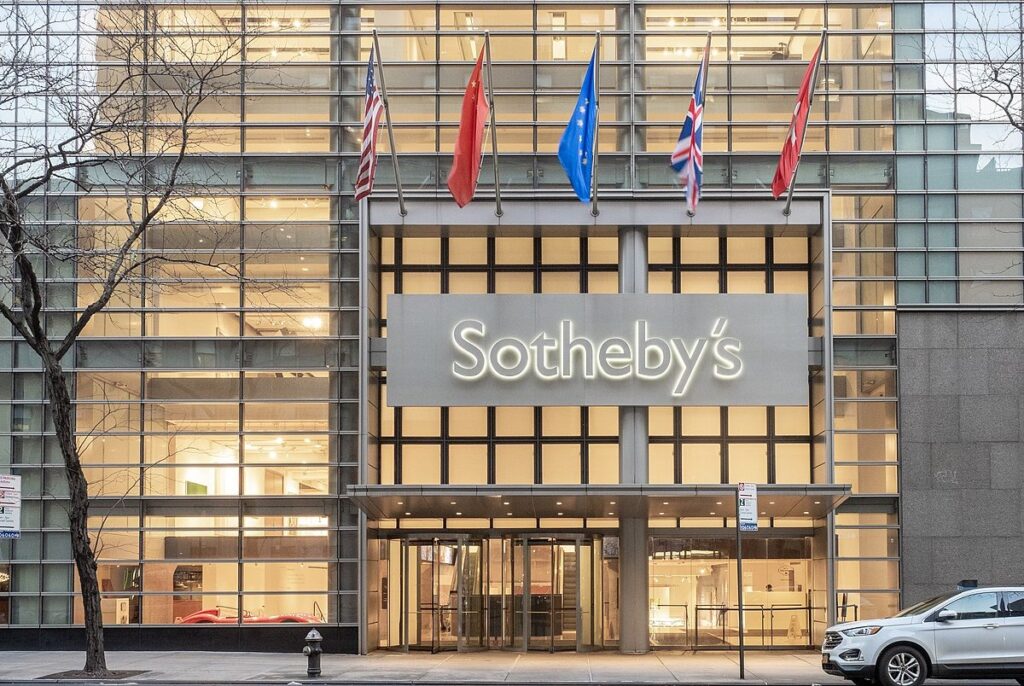Dmitry Rybolovlev loses bid to sue Sotheby’s

However, the case “achieved [his] goal of shining a light on the lack of transparency that plagues the art market. “
After a trial lasting almost a month, the verdict is in. Russian billionaire and AS Monaco owner Dmitry Rybolovlev lost his legal battle against auction house Sotheby’s, which he accused of complicity in a fraud case.
As a reminder, Yves Bouvier, a Swiss art dealer and former friend of Dmitry Rybolovlev, had acted as an intermediary in the purchase of a number of masterpieces. Then in 2015, the AS Monaco owner accused Bouvier of swindling him out of nearly a billion Swiss francs following purchases of 38 works of art. 12 of these were allegedly acquired at private sales organised by Sotheby’s, and four were at the centre of January’s New York case: a Magritte, a Klimt, a Modigliani and a Leonardo da Vinci.
Sotheby’s was accused of helping Yves Bouvier to overcharge for several works of art and of concealing information that would have enabled Dimitry Rybolovlev to be aware that Yves Bouvier was the true owner of the works he was buying.
One name in particular came up in the legal battle, as the New York Times reported: Sam Valette, Sotheby’s vice-president in charge of private sales. The prosecution alleged that Valette worked directly with Yves Bouvier to scam Dmitry Rybolovlev.
“[Sotheby’s] … allowed a greedy junior manager to rise through the ranks without ever being held to account. The company chose to sell its reputation, its brand, the trust that we all have in this kind of company, in order to make a profit,” one of the billionaire’s lawyers was quoted as saying to the ten-member jury in a New York federal court.
The auction house has always denied these accusations. Sotheby’s replied, again according to the New York Times, that Sam Valette was a keen, hard-working and honest art expert who only wanted to sell works at the highest price to his clients. They said that Yves Bouvier had never received any preferential treatment, and had been treated like any other customer. “If anyone were to blame for buying overpriced art, it was Rybolovlev himself,” said Sotheby’s defence.
At the trial, the auction house’s lawyers and Sam Valette, who testified in New York, “painted an ugly picture of Yves Bouvier’s deceptions,” as reported by the specialist magazine Artnet. But Sotheby’s lawyers have always insisted that the auction house bears no responsibility for these.
And that was the specific question that the American jury had to reach its verdict: was Sam Valette aware of Yves Bouvier’s actions? And, above all, did he help him carry them out? It was a complex matter. As the jury was able to see, the art business is extremely opaque.
Greater transparency in the art market?
After three weeks of hearings, with testimony from a series of industry professionals, and five hours of deliberations, according to the The Wall Street Journal, the jury found that the transactions carried out by Sotheby’s could not be considered fraudulent.
Sotheby’s welcomed the decision, stressing the auction house’s the auction house’s “commitment to the highest standards of integrity, ethics and professionalism.”
“This has been a long ordeal for Sotheby’s,” the auction house’s lawyer is quoted as saying in The Wall StreetJournal. “But it is uplifting that we were vindicated.”
One of the Russian billionaire’s lawyers said: “This case achieved our goal of shining a light on the lack of transparency that plagues the art market. That secrecy made it difficult to prove a complex aiding and abetting fraud case. This verdict only highlights the need for reforms, which must be made outside the courtroom.”
As Art News points out, despite the favourable verdict for Sotheby’s, many details of its internal workings and business practices were laid bare during the trial, offering a rare glimpse into the secretive world of private sales by auction houses which, in recent years, have accounted for a large proportion of the commissions earned by Sotheby’s and its competitors.













